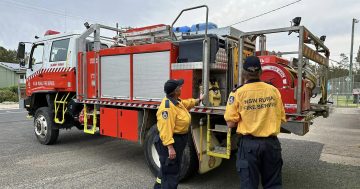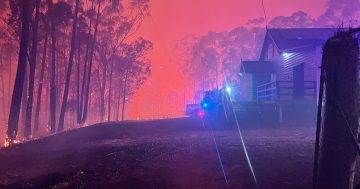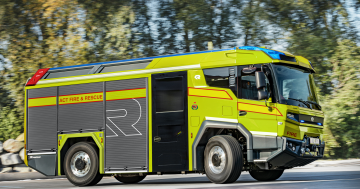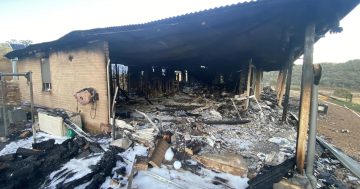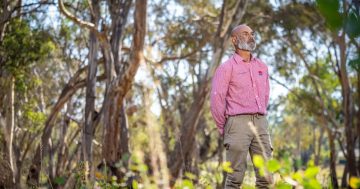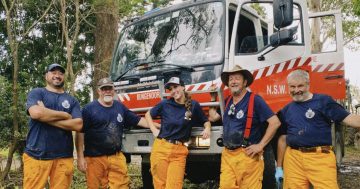
Fire burns in Bumbalong near Bredbo on Saturday, threatening properties. Photos: Local resident, Cally.
On Friday night, they got a message: the Orroral Valley fire will cross the border tomorrow and become the Clear Valley fire.
At 5 am Saturday morning they got a call: the fire was in the valley.
By midday the blaze had been elevated to emergency level and soon it was too late to leave Colinton, Michelago and Bredbo.
But Cally and her partner Adam, supported by two friends from Canberra, had decided they were going to stay and fight to defend their property in Bumbalong.
“We saw the fire trickle down from the gully behind our property and it came down quite slowly so it was a bit of a slow burn. It all seemed to take forever,” Cally told Region Media.
“We had a spot fire in front of our home and that just lit up the entire lower side of the valley and the trees to the north, and then the main front approached. Everything went straight up to 11 really, really quickly.
“All of a sudden there was just staggering heat. There were embers flying everywhere. It was so hot and the smoke was really acrid.”
When a fire front hits, it hits hard. Everything goes black, the radiant heat can kill well ahead of the fire and ash fills the air. Winds blow from all directions making spot fires unpredictable and often there is nowhere safe to shelter.
That is exactly what happened.
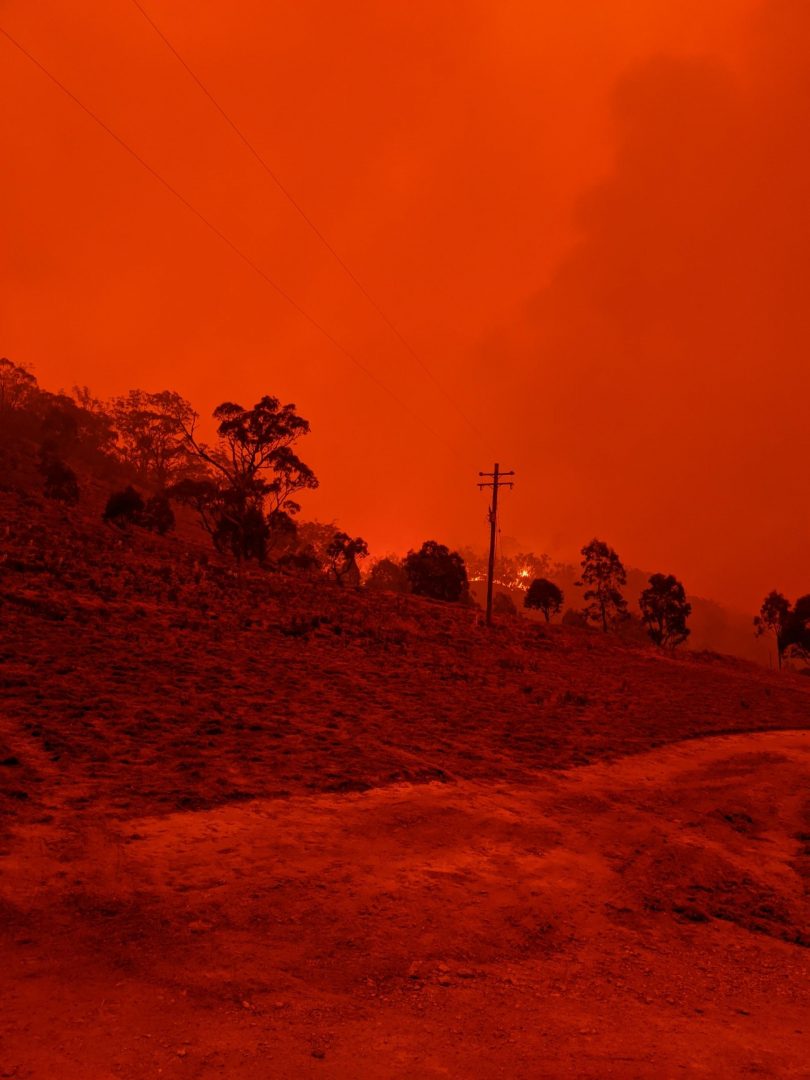
“I think crews in the area were really under pressure so we did not get any help during the main fire front.”
“We had fires to the west and to the east and to the south of us that night, so that was quite scary and intense. We had our goggles on and our breathing masks and I could barely breathe and barely see,” Cally said.
“There was one point where I was wondering if my goggles and my mask were working so I lifted them up to adjust them and as it happened they were working. The smoke and the heat were blistering. It was just so intense.”
It is more than just the flames that can threaten a community. Not only can embers remain well after the fire front passes, but both mental and physical exhaustion can push people to the precipice of their resilience.
“There were about five hours where we just did not stop, we could not stop,” Cally said.
“Physically and mentally we were really under pressure. We still have burning timber on our property, so we have not left our property for more than ten minutes to see a neighbour since the fire came through on Saturday.
“There were really strong winds that came through last night so my partner was awake and watching and monitoring the conditions from 11 pm until 2 pm because there was still active fire and the risk of glowing embers starting another fire.”
NSW Rural Fire Service Commissioner Shane Fitzsimmons and Emergency Services Agency Commissioner Georgeina Whelan have been very clear throughout the fire season that resources will be stretched on the worst fire days.
And the unfortunate reality of this became evident on Saturday.
“I could see the fires get really close to a power pole which was going to bring a whole other problem in itself, so I made a triple zero call to get help,” Cally said.
“I had made one earlier in the day when the spot fire came through but unfortunately no one was able to respond to that. I think crews in the area were really under pressure so we did not get any help during the main fire front.
“No help came.”
The NSW RFS has confirmed that at least seven houses have been lost in the Snowy-Monaro region since Saturday and some of Cally’s neighbours make up this count.
While the RFS could not officially give locations of properties that had burnt down, she told Region Media that a number of houses in the valley near Bredbo and Bumbalong were completely flattened by the fire.
Cally and Adam managed to save their house but they suffered extensive damage around their property.
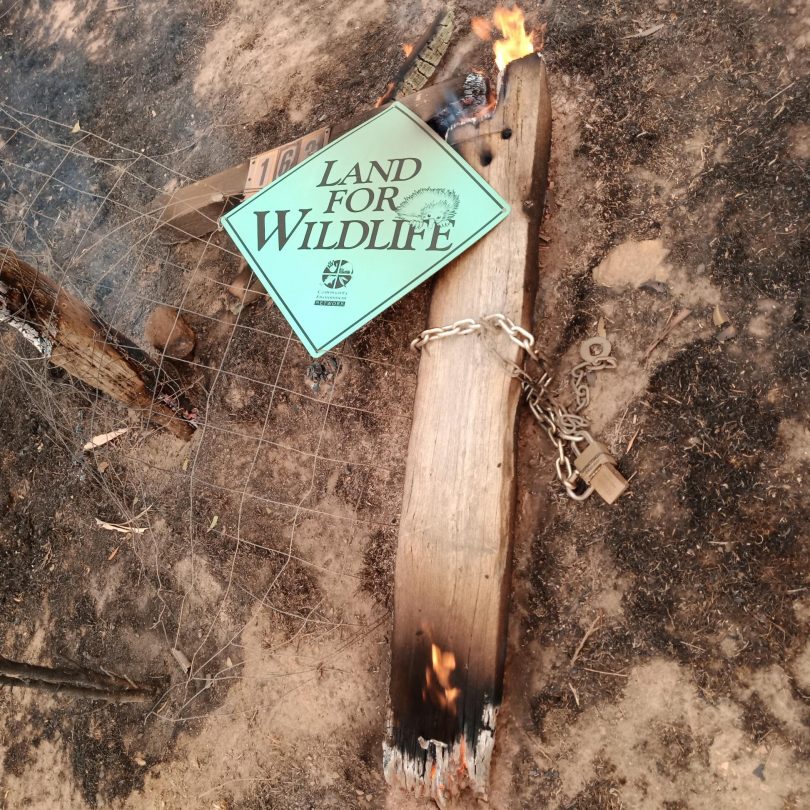
“We still have burning timber on our property.” Assessing the damage of the fires in Bumbalong on Sunday.
“We had planted about 1000 native trees and plants over the last three years and about ten of them were left,” she said.
“A lot of them are sticks and some of them you cannot even see that there was a plant there, there is just a hole in the ground.
“There is a lot of infrastructure that is gone so it is really hard to see that go. We still need to fix the water pump that got done by the intense conditions.”
Still the fight goes on for communities in the ACT and its regions as the Orroral Valley fire, Clear Range and Calabash fires remain out of control.

The sunrise on Sunday morning following the fire front in Bumbalong, near Bredbo.
“We are certainly not out of the woods,” Cally said.












